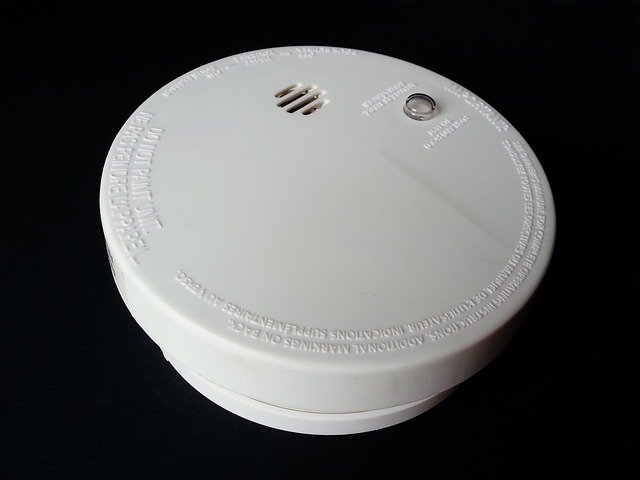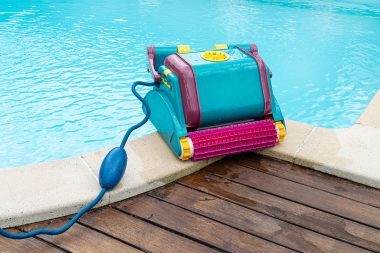How to Choose a Good Home Fire Alarm System
Top blog articles
Recovering from a fire is not easy. I know because I’ve been there. I witnessed our house slowly go down in flames, engulfed by a powerful element. And as a kid, I was traumatized by fires or anything related to fires. Even the sound of a fire truck would keep me on my toes.
According to the U.S. Fire Administration, the number of fire disasters in America last 2017 was a staggering 1,319,500 with 3,400 casualties. A fire can occur when we lack of education on some basic prevention measures in the first place.
Read more: Fire Damage Restoration Process For A House
The National Fire Protection Agency stated that most fire-related deaths were due to the lack of fire alarm systems. That’s why every home must install a competent fire alarm system because this might save your life one day. Here are a few benefits of a good alarm system in your home:
- Contrary to smoke detectors, alarm systems are designed to alarm inhabitants to evacuate the premises.
- They are proven and tested life-saving systems.
- Depending on the alarm system, even an entire building can be warned in case of smoke or fire.
- A good alarm device is beneficial for homes with elderly or hearing-impaired occupants.
- You can choose specific features that come with your alarm system.
Smoke Alarm Vs Fire Alarm: What is the Difference?

Let me just say right off the bat that both cannot be interchangeably used as both function differently. As the name suggests, a smoke alarm system can sense an unusual amount of smoke in a home and can then sound the alarm to warn the occupants.
The fire alarm system, on the other hand, can sense heat just like a smoke detector. Some fire alarm systems come also with additional features depending on your preference.
Tips on How to Choose a Good Alarm System for Your Home:
1. Choose the Type
An excellent thing about these powerful life-savers is that they come in different packages and features. First and foremost, you need to choose the type of alarm you need for your home. There are three most common types of alarm systems: Ionization alarms, photoelectric alarms, and dual-sensor alarms. Let’s first touch base on the benefits of each.
Ionization Alarms
- This system is great for detecting smaller smoke particles for quick-igniting materials such as paper. It works through ionization. The alarm system ionizes radioactive elements into the air inside. This triggers an electric current and when the ionization chamber disrupts the current, the alarm then goes off.
Photoelectric Alarms
- Smoke particles go into the alarm’s chamber. These particles then break up the sensor’s light, triggering the alarm. This system is good for detecting slow fires from clothing or upholstery. One upper hand of photoelectric alarms is that they rarely get false alarms (pardon the pun) because they mostly detect larger smoke particles, unlike ionization alarms which can detect smoke particles even from a burning paper.
Dual-Sensor Alarms
- As the name suggests, the dual-sensor alarms come with both ionization and photoelectric technologies. Because of this, these devices are the option to go with in homes for optimum life-saving capacity. Although they’re the most expensive system from the bunch, you can sleep well knowing that protection is not an issue.
2. Choose How It’s Powered
According to the National Fire Protection Agency, two-thirds of fire alarm deaths are also because alarm systems weren’t working properly. It’s very important to run a regular maintenance check on your alarm systems. After all, your family’s life is at stake here. Some alarms run on different kinds of batteries such as AA, AAA, or a 9-volt battery. An annual replace can keep the device in topnotch condition.
Another option for alarm power is lithium batteries. These batteries are acclaimed to last for as long as the alarm system’s lifespan. And the last option for power is hard wiring the system to the house and wiring everything together. This way, you can be sure that your alarms will never go out of power while there is a connection to the grid.
3. Consider the Home Size
Even if you install a home alarm system but didn’t optimize it according to the size of the house – the capability is futile. If you have a large house, it’s advisable to install a smoke alarm in every room, hallways, stairway, basement, and attic. Then again, it’s important that you connect all detectors and alarms together so that when one goes off in a particular area, the others will go off as well. This is advisable for a bigger house and you may need a professional to install this efficiently.
Read more: 7 Tips To Fireproof Home
4. Look for Additional Features
You can then customize your alarm systems according to your preference. Added features may include centralized controls for easily monitoring from a centralized area. Another feature would be easy maintenance. Some systems have an easy-slip battery so replacing the batteries are convenient. Then another option is to temporarily turn off the alarm using the “hush” feature. This is perfect if you want to silence the alarm while you look for the source. Or if you want to shut it off without removing the batteries.
Read more: Important tips regarding purchasing home alarm systems










Your opinion matters, leave a comment
Comments
My family just moved to a home with no fire alarms, and your article had some great tips for choosing and installing fire detection systems like this. I liked how you said to consider a dual-sensor alarm with both ionization and photoelectric technologies, as these can detect both kinds of fire. Thanks; we’ll keep this in mind when getting fire alarms.